In the Rumah Adat in Kampung Jenit, children from the age of 7 to 11 sit eagerly behind their designated blue tables. With colourful drawings on the wall and a whiteboard in the front, the children begin their studies under the dedicated guidance of their teachers, Liana and Suria.
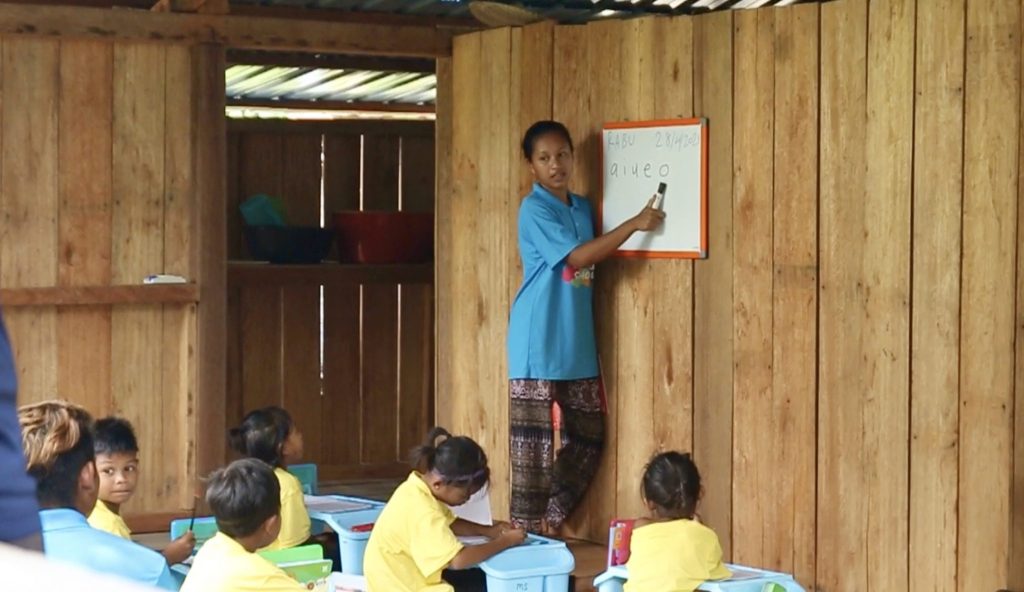
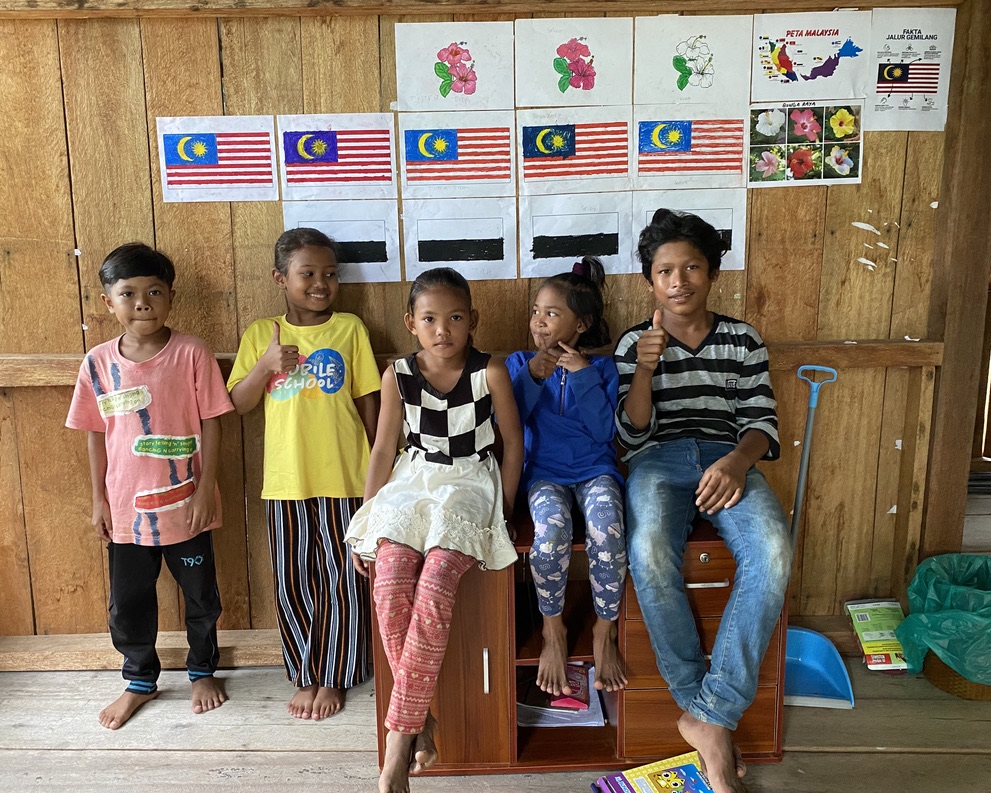
Liana, aged 23 and Suria, aged 24 are both Orang Asli villagers from Kampung Jenit. As mothers of two children, Liana and Suria took on the role as teachers as they believe education is important for the Orang Asli children.
All the children here (Kampung Jenit) are my family. That’s why I feel it is my duty to teach the children. Education is important to me because I didn’t have the opportunity to go to school.
Liana, teacher in Kg. Jenit
Although all children have a right to quality education, many Orang Asli children face high school dropout rates, with many more having never attended school at all.
Without access to education, many Orang Asli children struggle with low literacy skills and will likely experience negative impacts from an even greater social and economic disadvantage in our fast-changing world.

As Liana never went to school and Suria dropped out when she was in standard five, the two have experience on how challenging it is for Orang Asli children to have access to education. As a result, this makes them extremely dedicated to teaching the children in their village basic literacy and numeracy skills.
Since my father was busy working and my mother did not know how to ride a motorcycle, I couldn’t go to school. (But) I love learning. Although my father was busy, he would teach me when he could and I would save up money to buy books so that I could learn how to read and count.
Liana, teacher from Kg. Jenit
To make education accessible to Orang Asli children, we implemented a children learning programme called The Mobile School in the Orang Asli villages.
Since June of 2020, The Mobile School has been carrying out community learning sessions with the Orang Asli children. In partnership with ECM Libra Foundation, the Mobile School aims to provide children with the opportunity to learn basic literacy, numeracy and life skills.
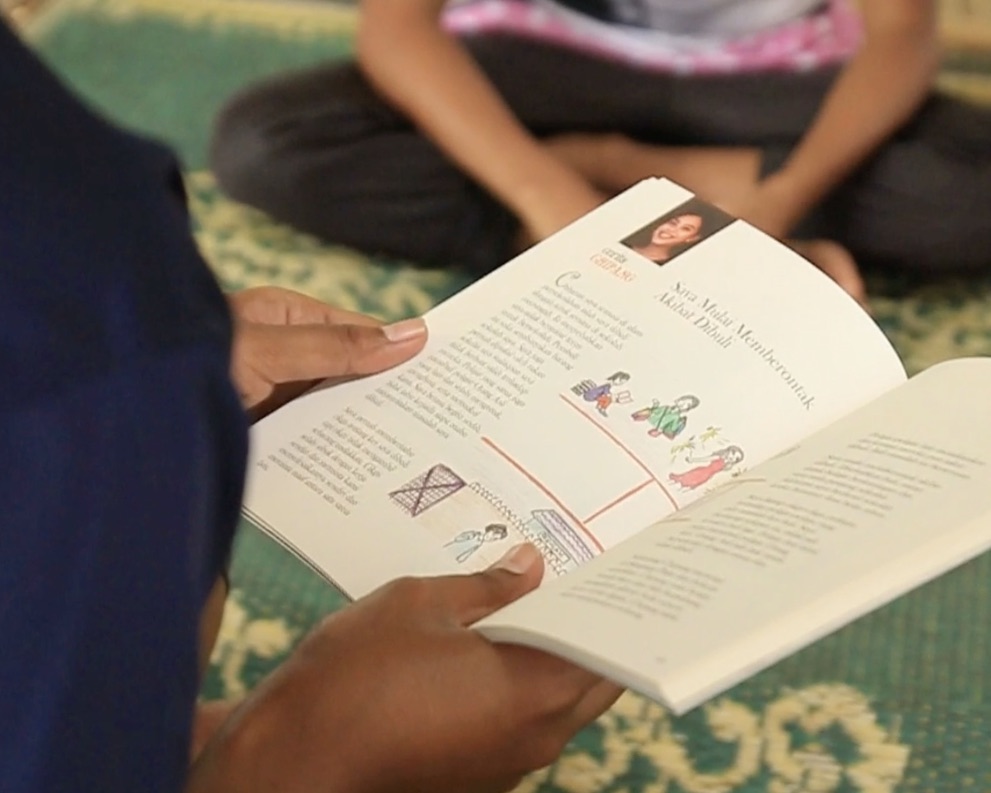

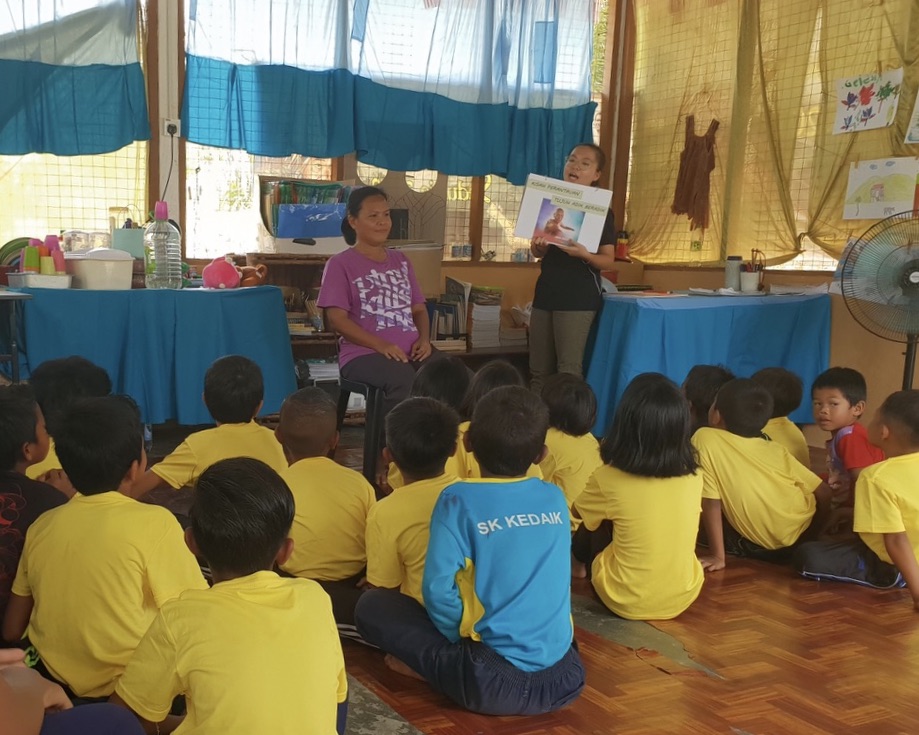
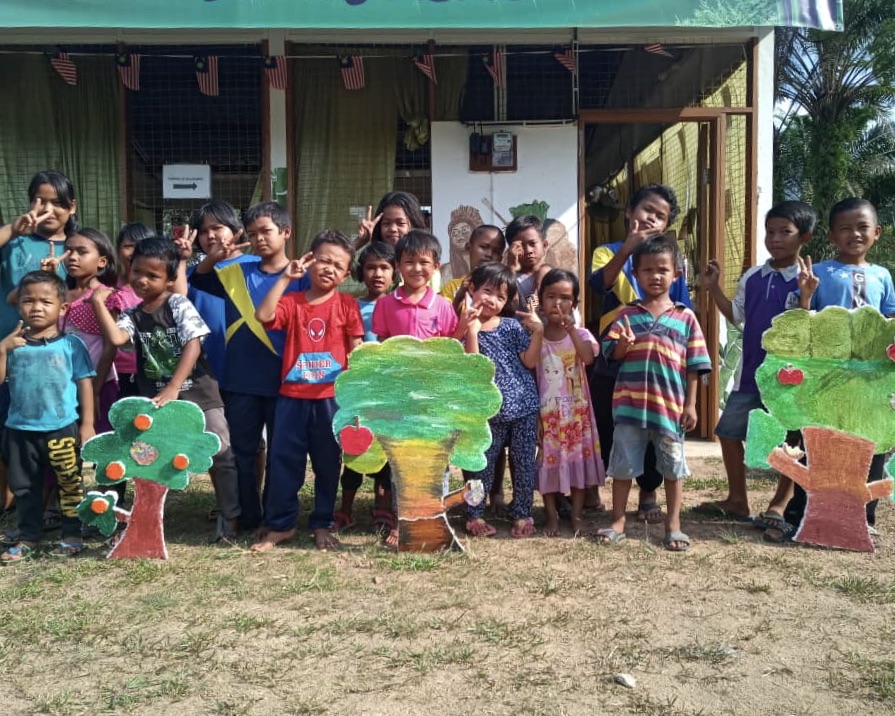
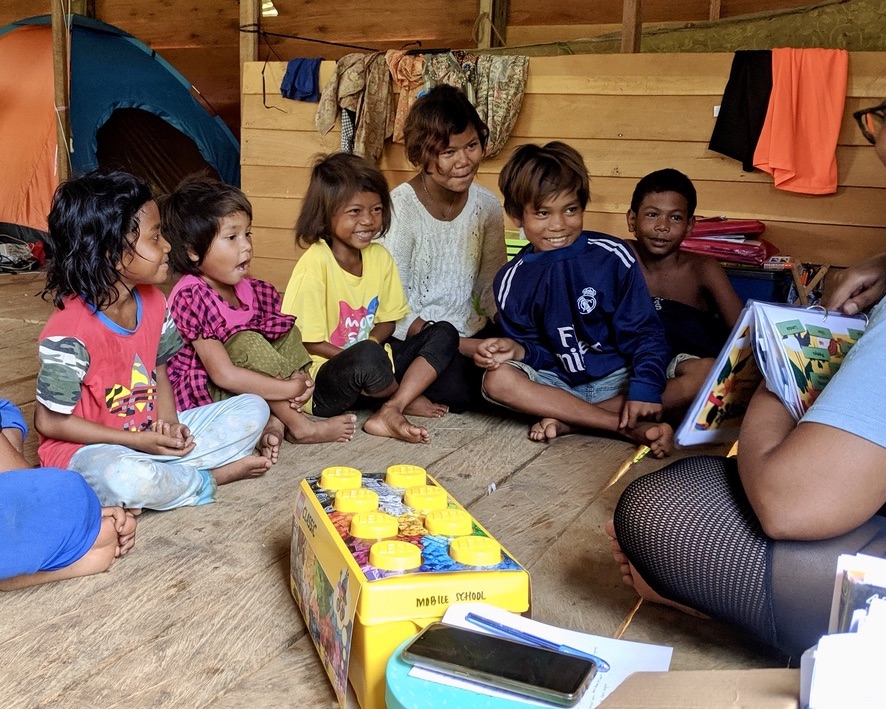

It is important for me to teach the children here the traditions of Orang Asli. This way, they can learn more about the cultural practices of our ancestors.
Ayuni, teacher in Kg. Teraling
By bringing out-of-classroom learning to the villages, the Mobile School also fosters a creative space where the cultural identity of Orang Asli are valued and celebrated.
Today, children across 6 villages in Pahang have access to weekly learning sessions that have improved their literacy, numeracy and life skills.
Like Liana and Suria, Ayuni is a 17 year old student who teaches in the Mobile School in Kg. Teraling together with her 16 year old sister, Amira. Still attending school, Ayuni has ambitions to pursue higher education and hopes that the children in her village will have opportunities to continue their studies as well.

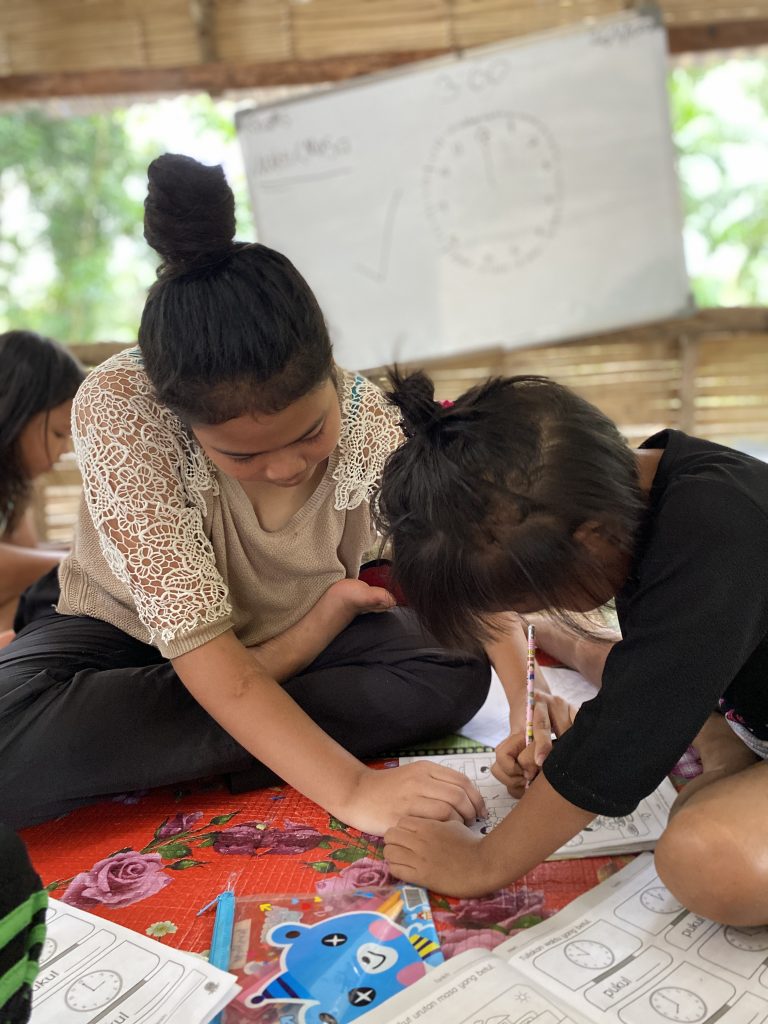
My hope for the children in this village is that they will be able to continue learning. This is because I want the children here to be smart so that they won’t have to face any challenges in their everyday lives in the future.
Ayuni, teacher in Kg. Teraling
With these teacher’s dedication to teach and the Orang Asli children’s eagerness to learn, we hope that the Mobile School will continue to bridge the learning gap for Orang Asli children for many years to come.
Find out more about the Mobile School programme here. If you would like to support this initiative, please reach out to us here.
Written by:
Lauren Chew, Communications Officer






